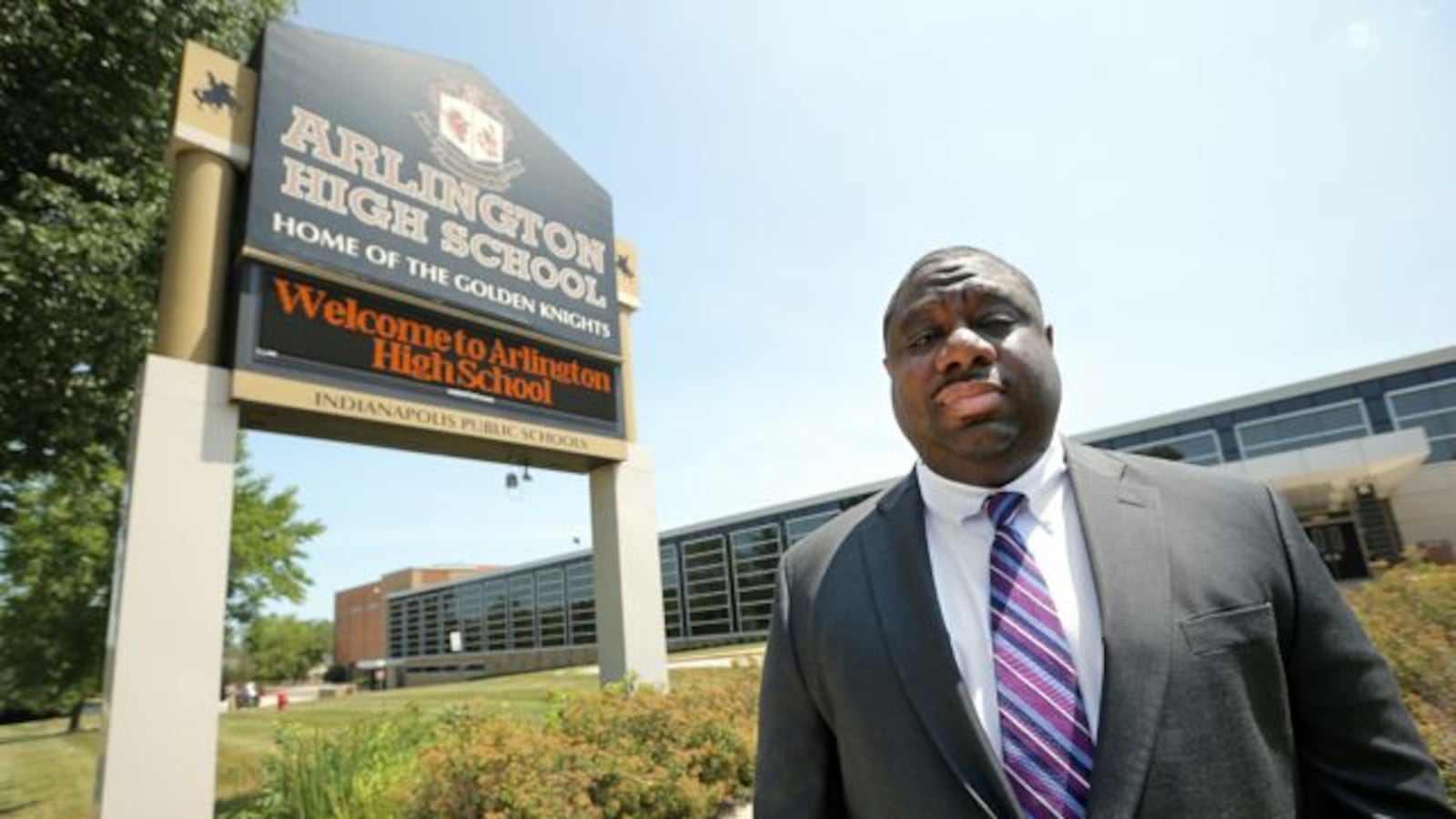Marcus Robinson is resigning from Memphis’ most prominent education philanthropic fund for a new job in his hometown of St. Louis.
Robinson, a former Indianapolis charter school leader, took the helm at Memphis Education Fund in 2016. He is leaving his post next month to join The Opportunity Trust in St. Louis, a new effort centered on eliminating barriers to economic mobility.
“I’m looking forward to taking lessons learned in Memphis and apply them in my hometown,” Robinson told Chalkbeat. “I haven’t had the opportunity to serve kids in St. Louis for a long time.”
His three big takeaways: A city’s education community needs a clear strategy and collaboration; school choice isn’t enough if there aren’t enough quality choices; and school leadership is paramount.
The fund has invested more than $25 million in Memphis education initiatives since 2015 — ranging from helping charter schools afford new curriculum to bolstering principal pipelines.
Terence Patterson, the former head of the Downtown Memphis Commission, will serve as interim chief of the fund while a national search is conducted for the next leader, according to an email sent to fund supporters. Patterson currently sits on the fund’s board.
“Marcus has provided thoughtful leadership and direction to the Memphis Education Fund for the past two years,” Beverly Robertson, who sits on the fund’s board of directors, said in the email. “We will miss his passionate commitment to change the trajectory of students in Memphis, but we wish him well in St. Louis.”
Originally called Teacher Town, the fund was created in 2014 by Memphis education leaders and local philanthropists with a goal of transforming Memphis into a destination city for talented teachers. That vision built on a major investment by the Bill & Melinda Gates Foundation to improve teaching in the city.
In 2016, the group adopted a broader goal of improving all schools; brought in Robinson; and joined Education Cities, a national collective of local groups seeking to reshape schools in their cities.
He told Education Cities a year ago that his vision for Memphis would be “to unite everyone around a common set of operating principles, expectations, and evaluations to create a level playing field for each operator to perform optimally.” This falls in line with the portfolio vision, which aims to give all schools flexibility to operate as they see fit, while holding them equally accountability for results.
But instead of bringing the Shelby County Schools district and local charter operators closer together, 2017 saw them waging open competition for students and sparring over sharing student contact information.
However, Robinson said progress has been made — and the fund has specifically gotten local district and charter leaders together at the same table to talk school leadership.
“When you look at the impact of Memphis Education Fund, it’s about influence work,” Robinson said. “Influence is based on relationships. We have been in a unique position to bridge between education communities so that people are talking about important things together.”
Robinson said in January that for 2018, the fund would tackle priorities that are not likely to inflame divisions. It will continue to focus on principal training, along with helping single-site charter organizations, boosting reading skills among the city’s youngest students, and recruiting new Memphis teachers.
Robinson said the fund has spent the past two years focusing in on its new direction, and now is at a point to move forward and create significant change.
In his new role in St. Louis, Marcus will work with The Opportunity Trust to launch its work in education, “focusing on catalyzing greater innovation within the education sector in the St. Louis region,” according to the email.
“If it had been any other city than St. Louis that called, I wouldn’t have answered,” Robinson said, who added that it was the trust that contacted him about the position. “Home is always home. There are waves of innovation and reforms happening in the area that I’d love to be a part of, having been privy to a national conversation about innovation and reform.”

